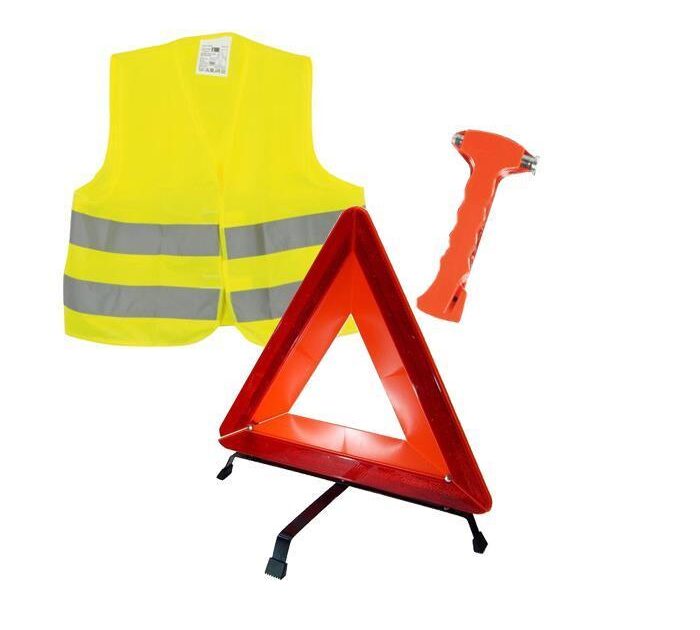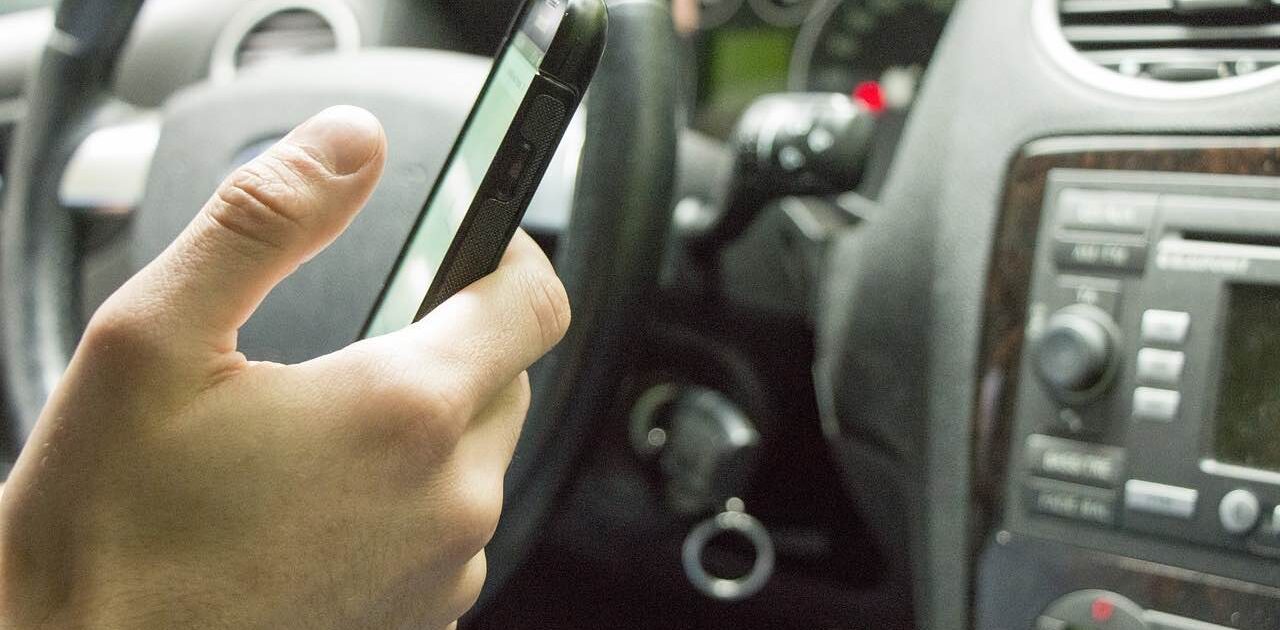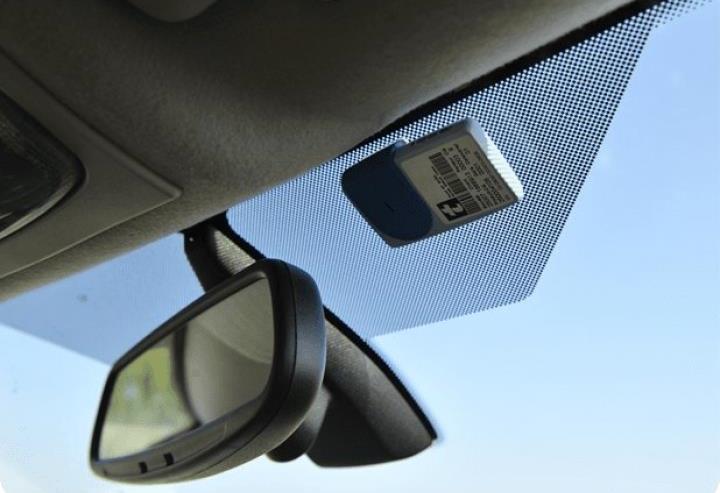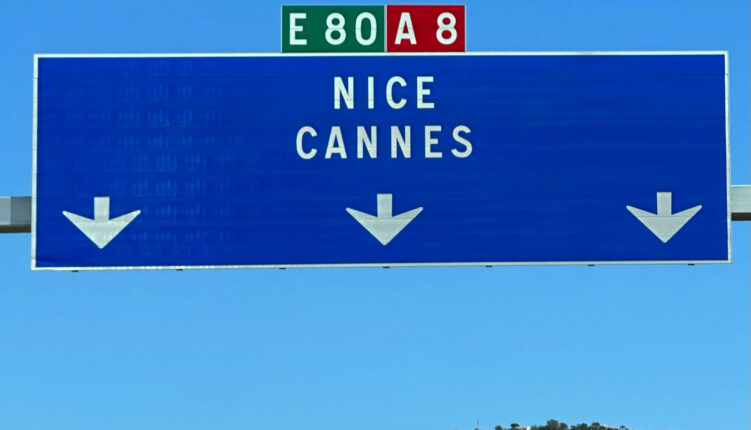The summer vacations have arrived and vacationers are once again flocking to France by car on their way to their vacation homes and other destinations. But what are your obligations as a motorist on French roads? Below we list a few key points for you:
The warning triangle
The warning triangle is mandatory. It should be placed at least 30 meters away from the back of your car if you have to stop along the road. It is important that other road users see the triangle, but that it does not pose a danger to them. If you are standing directly after a turn, the triangle should be placed before the turn. Always place the warning triangle safely to the side and never on a bike lane or center. In the absence of a safe place to put the triangle, it is better to leave it in the car or place it closer to the car.
The warning triangle on the French highway: When you are stopped on the hard shoulder, you are not on the road according to French traffic rules. In this case, there is no need to place a warning triangle behind your car. In fact, this can be very dangerous for fellow road users and, due to the high speed of vehicles, cause serious accidents when someone hits the triangle.
The yellow vest
The yellow vest is also mandatory in France. When getting out of the car after an accident, at a breakdown or to change a tire, you should put on your yellow vest. Therefore, it is advisable to keep it in the glove compartment because if you cannot access your vest during an inspection, you may be fined because the police assume that you cannot put it on before leaving the car. For added safety, it is advisable to put several reflective vests in the car so that all passengers are highly visible. It is important that children and adults who are not helping with tire changes or other problems stand safely behind the guardrail or wait in a safe place a little further away. When waiting for roadside assistance on the highway, all passengers should get out on the right side and stay behind the guardrail. Never forget to turn on your hazard lights before leaving the car and to leave them on as long as your car is stationary along the road.

High chairs and booster seats in France
In France, children under 10 must be in a child seat in the back seat. Infants may be placed on the passenger seat with their backs to the road in an infant car seat. While doing so, do not forget to turn off the airbag.
Children 10 years of age or older may sit in the car in both front and rear with a three-point seat belt. If the child is too small to wear the belt safely, a booster seat can be used.
Risks if you don’t have these items in the car
If you do not have a warning triangle and/or yellow vest in your car, the fine is €135. The safety jacket may be the following colors: yellow, orange, green, pink or red. It must comply with EN 1150:1999 or EN ISO 20471:2013 standard and have CE marking. Of course, the vest must reflect enough light through the special silver colored bands. The warning triangle must comply with the ECE R27 standard.
Where can a warning triangle and yellow vest be purchased in France?
These mandatory safety items can be purchased at any major supermarket, such as Auchan, Carrefour or Géant. Also, most gas stations usually stock them. So don’t panic if you haven’t already purchased these for your vacation to France and don’t have them in your car yet.
Mandatory in-car alcohol test in France
Since May 22, 2020, it is no longer mandatory to have an alcohol test in the car when driving through France. However, it is still recommended to bring an unused, regulation-compliant alcohol tester.
What is prohibited in the car in France?
On French roads, it is forbidden for a driver to eat or drink while driving. Also, do not ride in flip-flops or bare feet.
Holding a phone in your hand, as in many countries, is also prohibited in France. Since July 1, 2015, earbuds, earpods and other devices you place in your ear that allow you to listen to music or make phone calls are also prohibited.
Do you have a phone in your hand while driving or do you still use earbuds? Then you risk a fine of €135 and the loss of 3 points if you have a French points driving license.

If you commit a traffic violation while having a phone in your hand, the police can revoke your driver’s license on the spot. Below are some examples of traffic offenses where this is possible:
- No turn signal user
- Driving too close to the vehicle in front of you
- Crossing a solid line
- Driving through orange or red lights
- Overtaking on the right
- Denying pedestrians the right of way
- Driving too fast
Does your car have tinted windshields? Then it is important to check carefully whether they are allowed in France. In fact, light transmission must be at least 70%.
Handy to always have in the car
These things are not mandatory in France, but they are handy to have in the car:
- European claim form
- Extra yellow vests for passengers
- Emergency hammers (with knife to cut the belt)
- Spare tire with all parts and necessary tools
- Spray can against flat tire
- First aid kit
- Spare lamps
- Spare glasses/lenses
- Small fire extinguisher
- Bottles of water
- Cash money
- Reusable cutlery and napkins or a box of tissues
- Toll badge (click here for more information and to purchase it)
- Environmental sticker


